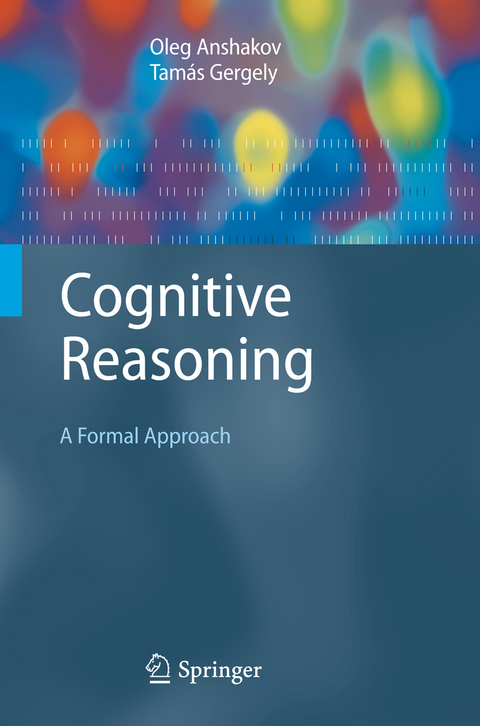
Cognitive Reasoning
Springer Berlin (Verlag)
978-3-642-26165-7 (ISBN)
Dealing with uncertainty, moving from ignorance to knowledge, is the focus of cognitive processes. Understanding these processes and modelling, designing, and building artificial cognitive systems have long been challenging research problems.
This book describes the theory and methodology of a new, scientifically well-founded general approach, and its realization in the form of intelligent systems applicable in disciplines ranging from social sciences, such as cognitive science and sociology, through natural sciences, such as life sciences and chemistry, to applied sciences, such as medicine, education, and engineering.
The main subject developed in the book is cognitive reasoning investigated at three levels of abstraction: conceptual, formal, and realizational. The authors offer a model of a cognizing agent for the conceptual theory of cognitive reasoning, and they also present a logically well-founded formal cognitive reasoning framework to handle the various plausible reasoning methods. They conclude with an object model of a cognitive engine.
The book is suitable for researchers, scientists, and graduate students working in the areas of artificial intelligence, mathematical logic, and philosophy.
Conceptual Theory of Cognitive Reasoning.- Introductory Explanation.- Basic System of Concepts.- Constructing a Model of a Cognizing Agent.- Cognitive Reasoning Framework.- Logic Foundation.- Introductory Explanation.- Propositional Logic.- First-Order Logics.- Formal CR Framework.- Introductory Explanation.- Modification Calculi.- Derivability in Modification Calculi and L1.- Semantics.- Iterative Representation of Structure Generators.- Modification Theories.- Conformability.- Handling Complex Structures.- Introductory Explanation.- Set-Admitting Structures.- Set Sorts in Modification Calculi.- Perfect Modification Calculi (PMC).- JSM Theories.- Introductory Explanation.- Simple JSM Theories.- Advanced JSM Theories.- Similarity Representation.- JSM Theories for Complex Structures.- Looking Back and Ahead.- Introductory Overview.- Towards the Realisation.- CR Framework.- Open Problems.- Philosophical-Methodological Implications of the Proposed CR Framework.
| Erscheint lt. Verlag | 1.3.2012 |
|---|---|
| Reihe/Serie | Cognitive Technologies |
| Zusatzinfo | X, 437 p. |
| Verlagsort | Berlin |
| Sprache | englisch |
| Maße | 155 x 235 mm |
| Gewicht | 659 g |
| Themenwelt | Informatik ► Theorie / Studium ► Künstliche Intelligenz / Robotik |
| Schlagworte | Abduction • Analogy • Artificial Intelligence • cognitive science • Common-sense reasoning • Formal inference • Formal philosophy • Formal Reasoning • Fuzzy Logic • Fuzzy-Logik • Fuzzy-Logik / Unscharfe Logik • information systems • Knowledge • Künstliche Intelligenz • Logic • Many-valued Logic • Maschinelles Lernen • Mathematical Logic • Modeling • Non-Classical Logics • Problem Solving |
| ISBN-10 | 3-642-26165-5 / 3642261655 |
| ISBN-13 | 978-3-642-26165-7 / 9783642261657 |
| Zustand | Neuware |
| Haben Sie eine Frage zum Produkt? |
aus dem Bereich


